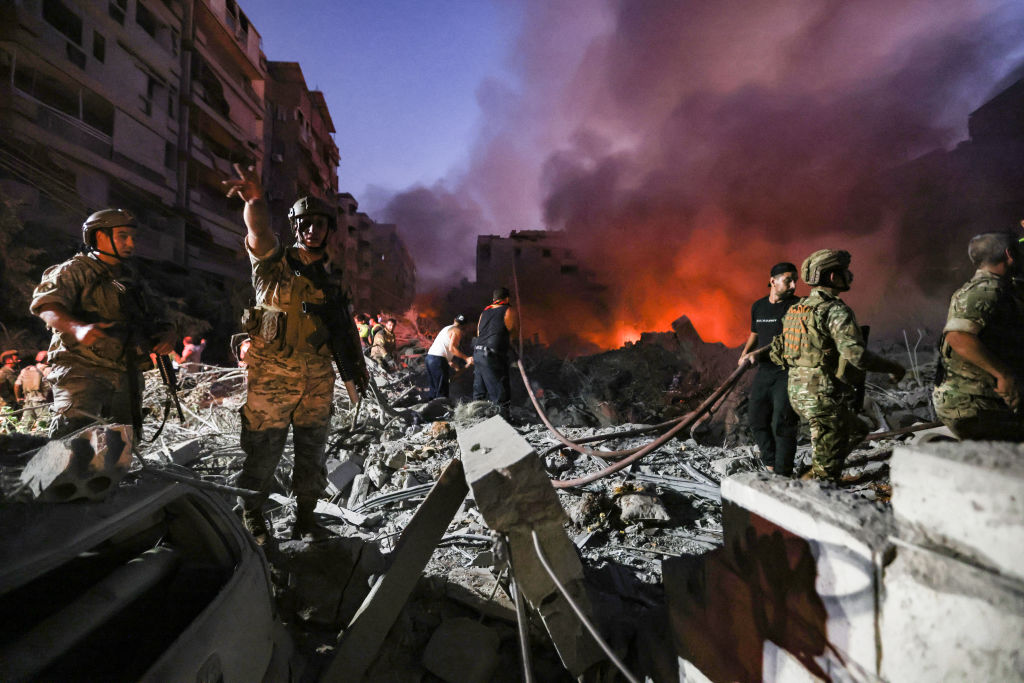Iran has launched a significant ballistic missile attack on Israel in response to Israel’s recent killing of Lebanese Hezbollah leader Hassan Nasrallah and of Hamas leader Ismail Haniyeh in Tehran back in July.
An Iranian attack was always likely. Iran would have perceived a need to restore deterrence amid the devastating losses that Hezbollah has suffered in recent days. The scale and, in terms of the pager-walkie talkie attacks, very publicly embarrassing nature of these attacks would have caused Supreme leader Ayatollah Ali Khamenei to view the credibility of Iran’s theocratic project as jeopardised. The initiative wasn’t simply with Israel; Iran looked impotent and humbled. Khamenei needed to respond in order to show both his regional partners and adversaries that his regime has the resolve and capacity to respond.
Still, the scale of Iran’s attack is significant. Undue attention has been drawn here to Iran’s apparent warning to the United States that a missile onslaught was coming. The intent was to give the US time to tell Israel to prepare its citizens to take shelter. Instead, what matters most here is how Israel will perceive Iran’s attack. Because Prime Minister Netanyahu and his government will likely perceive this strike as highly problematic.
While Israel downed a large number of Iranian ballistic missiles, a large number penetrated the defensive effort. It’s not clear how many Israelis have been killed or injured, but that’s only one consideration that will shape Israel’s response. What matters is that major Israeli population centres have suffered a non-insignificant number of impacts by Iranian ballistic missiles. That reality will be seen as having undermined Israel’s deterrence posture against its arch nemesis.
Israel will want to restore deterrence in order to ensure Iran does not believe it can replicate this action without major cost. This point takes on additional importance in regards to Iran’s future prospective threat to use ballistic missiles loaded with nuclear or chemical/biological warheads. The psychological trauma of the 7 October 2023 Hamas attacks still loom large in the Israeli civilian and security apparatus psyche. Israel wants to show it is both powerful and bold.
It’s also important to note that Netanyahu clearly senses the political and strategic wind is at his back. And because Netanyahu’s relationship with President Biden is already on life support, Netanyahu might feel that he has a window before the next US president takes office. While Israel lacks the ability to destroy Iran’s nuclear programme, for example, it could do significant damage to that programme. At a minimum, we will see significant Israeli strikes on IRGC and Iranian conventional forces. This will almost certainly include strikes on Tehran. Israeli strikes against Iranian refining capabilities may also occur.
The challenge for the US is to balance Israel’s response alongside deterrence of Iran against carrying forward the escalation spiral. Khamenei and his commanders are now paranoid about their own regime’s security and may seek to jeopardise regional energy flows, stability in capitals such as Baghdad and Beirut, and exacerbate concerns related to terrorism. This would also risk tying down the US military in an environment where Chinese aggression against the Philippines is growing and the need for a stronger posture in the Pacific is urgent. The US needs Israel’s response to this attack to end the current cycle of violence.
In short, Biden isn’t likely to be returning to the Delaware beach anytime soon.











Join the discussion
Join like minded readers that support our journalism by becoming a paid subscriber
To join the discussion in the comments, become a paid subscriber.
Join like minded readers that support our journalism, read unlimited articles and enjoy other subscriber-only benefits.
Subscribe